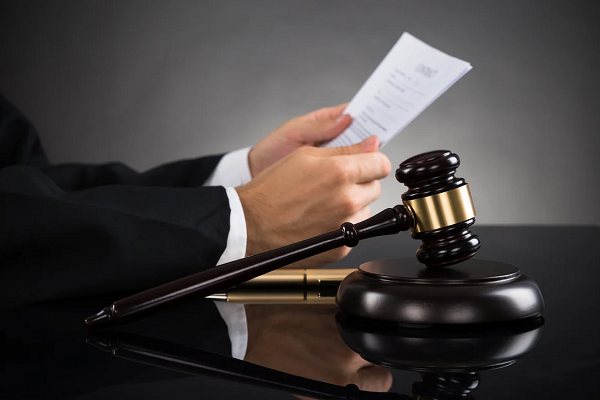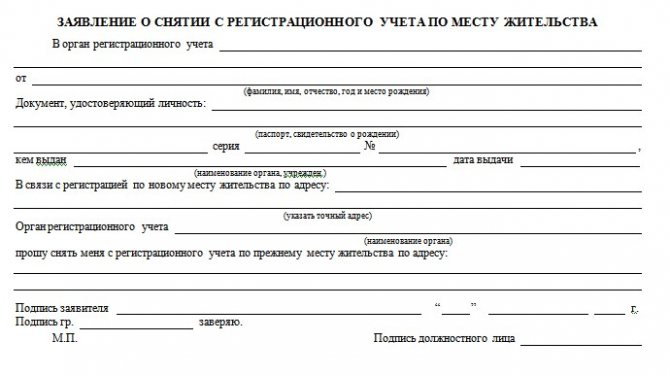Home / Housing disputes / Forced eviction from an apartment through the court
Active privatization of housing 20 years ago increased interest in forced eviction from an apartment. The city court offices were literally inundated with lawsuits to evict tenants. This phenomenon was explained by the receipt of apartments as property. Having become the owner of the property, the new owners resorted to evicting the old residents. The latter, in turn, refused to be discharged voluntarily.
The situation has not changed today, although the percentage of appeals to the courts is no longer as high as before. Forced discharge allows you to resolve the issue as soon as possible. This is relevant if residents violate the rules of living in the apartment or even move to another place of residence. Let's consider what is an extract through the court?
Forced discharge
Let's start with the constitutional foundations of the Russian state - Article 40 proclaims that every person has the right to housing. You can’t just evict a person from an apartment. Especially if the evicted person has nowhere to live or is in a difficult financial situation. If so, this gives rise to property disputes. Agreeing on an eviction amicably means solving half the problems. But if consensus is not found, then a court cannot be avoided.
Judicial authorities are authorized to consider cases related to the deregistration of owners and non-owners of housing. It is easier to register a regular tenant or a temporarily registered one. Things are more complicated with children who have a share in the house. Forced deregistration allows you to remove a tenant from the registration register even without his consent. Sometimes this is the only way out of the situation.
Reasons for discharge
The specifics of the extract are regulated by the provisions of the Civil, Housing and Family Code. The legislation establishes reasons for the forced discharge of a tenant without his consent.
Vital grounds for judicial discharge:
- Dissolution of the marital union of spouses.
- Long-term non-payment of utility bills.
- Regular disturbance of public order in the house.
- Creating a terrible atmosphere inside the house.
- Living at a different address for a long time.
- Sale of an apartment to a new owner (under a purchase and sale agreement).
- Inappropriate use of residential premises.
- Serving in the army.
- Departure to places of detention.
- Death of a person.
The burden of proof of the above-mentioned circumstances rests on the shoulders of the apartment owner. Only he has the right to forcibly evict a tenant from the house. True, if the owner himself is the violator, then the tenants or neighbors at the entrance can file a claim. Often the guardianship and trusteeship authority intervenes in the matter. For example, if a child’s rights are violated.
How to discharge a person from an apartment through the court?
Even based on the name, forced discharge differs from regular one. Interested parties need to go to court, and only then discharge the person. This procedure is due to the need to obtain a court decision. The absence of a resolution creates difficulties with the discharge of an unwanted tenant.
Procedure
There are rules for discharging tenants through the court - first there is a written warning to the violator, and only then can you go to court (Article 132 of the Code of Civil Procedure of the Russian Federation).
A pre-trial claim serves as an official form of warning a person about further consequences. In Russia, a complaint is sometimes replaced by a verbal warning. Neighbors in the stairwell, other residents, the district police officer, etc. can confirm the fact of verbal reprimand.
The plaintiff submits documents along with the statement of claim. Moreover, it is important to prove the fact of systematic violation on the part of the defendant. Otherwise, the court will not take the applicant’s side and the extract will be denied. Useful material on the topic of how to discharge a temporarily registered person without his consent.
Procedure
Instructions for the forced discharge of a tenant by court:
- Establishing the fact of violation of public order.
- Drawing up a written complaint to the tenant. An obvious and deliberate lack of response on the part of the latter is grounds for going to court.
- Preparation of evidence (interrogation of witnesses, preparation of receipts, certificates, copies of police reports, etc.).
- Filing a claim for discharge without the consent of the tenant.
- Participation in court hearings from the position of the plaintiff.
- Obtaining a copy of the writ of execution/refusal of the judicial authority. The refusal can be appealed to a higher court, but it is better to agree with the tenant on voluntary deregistration. This way you will save time and money.
- Visit to the unit of the Main Department of Migration Affairs of the Ministry of Internal Affairs at the place of registration of the apartment.
- Forcibly deregistering a resident based on a court decision (if a person is removed from his permanent place of residence, he will be stamped in his passport; temporary registration is canceled without stamps).
- Finally, all that remains is to wait for the tenant to leave.
There are known cases when, even after the trial, residents did not want to move out of the apartment. Then you need to contact the bailiffs. After this, the eviction occurs jointly with law enforcement agencies. As a rule, this is a district police officer for the district.
Statement of claim
The application to the court is completed by the plaintiff or his representative. The determination of jurisdiction is important. Cases related to eviction from an apartment are considered in the district court.
Rules for filling out a statement of claim for deregistration:
- Introductory part - indicate the exact name of the judicial body, then - full name, contact information of the plaintiff and defendant.
- The main part is to describe the essence of the problem so that the judge does not have questions about what your claim is. Sometimes it is appropriate to accompany the description with evidence. Don't forget to back up your words with references to legal provisions. If you have difficulties interpreting the law, contact the lawyers of our portal.
- The final part - the plaintiff’s demands to the court are indicated (usually to discharge the tenant from the area he occupies).
Therefore, the application form must include:
- full name of the district judicial authority;
- Full name, place of residence and passport details of the parties to the dispute;
- an indication of the problem, the circumstances of the resolution of the case in favor of the plaintiff;
- information about sending a claim to the defendant;
- a list of evidence that the plaintiff is right;
- date and signature.
Structured information should have a detailed designation, but also not go beyond the scope of business documentation. There is no need to describe the history of acquaintance with the defendant or make references to insignificant facts. It is advisable to obtain a free consultation from our lawyers. Experts will tell you how to correctly formulate demands and emerge victorious from a legal dispute.
Documentation
The applicant will need a complete package of documents. The application will be accepted only if the entire list is available. Don't be alarmed if you are denied your initial appointment. The secretary of the district court office reports missing documents - they will need to be collected again.
So, what documents will be needed for discharge through the court:
- copy of the passport;
- document of title (the owner of the property must provide a certificate of ownership; the tenant must provide a social rental agreement with the municipality);
- copies of receipts for payment of utility bills;
- certificate of divorce (if the ex-spouse is subject to discharge);
- official written permission from the guardianship and trusteeship authority (when deregistering children);
- receipts for payment of state duty.
Let us note that success in the upcoming case does not depend on the main documents. The evidence base is of paramount importance. It is on the basis of confirmation of the plaintiff’s words that the court makes a final decision.
Don't forget to read what documents are needed to check out of the apartment.
The evidence base can be:
- witness testimony (neighbors, relatives, residents, district police officer, third parties);
- audio, photo and video materials of violations of public order;
- confirmation of non-payment on receipts from the management company, homeowners association or housing department;
- certificate of residence at another address;
- copies of arrest reports, recording violations on the part of the tenant;
- a certificate from the military registration and enlistment office confirming conscription for military service;
- a copy of the court decision on imprisonment;
- a copy of the death certificate.
The last three types of evidence allow military personnel, convicted and deceased persons to be discharged from the apartment. You can confirm the death of a person using certificates from the maternity hospital, morgue, a report from the captain of a ship or aircraft, as well as a notification from the head of the prison. Read more about this in our article, evicting a non-owner from an apartment without consent.
Grounds for discharging a person through the court
People apply to the court for deregistration in strictly defined cases. The main reasons for discharge through the court:
- termination of marriage with the owner of the property;
- long-term (more than six months) failure to pay utility bills in a municipal apartment or leading an immoral and asocial lifestyle;
- identification of the fact of fictitious registration (not living in an apartment at the place of registration).
A person deregistered through a court can always appeal the decision and try to have it reviewed or cancelled.
Divorced marriage
Divorce is a good reason for deregistration if the former spouses are not co-owners of the home. In this case, the court usually sides with the property owner and there are no problems with making a decision on deregistration.
Difficulties with discharge arise when:
- The former “other half” was registered in the apartment at the time of its privatization.
- The apartment was purchased during marriage, and the spouses are co-owners or co-borrowers on the mortgage.
- There are minor children. If, for example, a mother and child are discharged, the court may reserve the minor’s right of residence until another housing is found that is no worse in terms of living conditions than the previous one.
Debt to pay utility bills
Residents of municipal apartments who are tenants under a social tenancy agreement can be discharged if they do not pay utility bills for more than six months. We are talking about complete, not partial, non-payment. Representatives of the municipality have the right to initiate eviction and deregistration.
If the tenant pays the debt before the court decision is made, then deregistration can be avoided. A homeowner can be evicted for non-payment only if the debt is so large that the utility services have already gone to court to collect it.
If the owner of the apartment does not have money, then the bailiffs can put his property up for sale. However, such situations still happen extremely rarely.
Public order disturbance
It is the responsibility of residents of a municipal apartment to comply with rules and order. If a tenant poses a threat to the safety of others, then tenants have the right to initiate the procedure for deregistration with subsequent eviction.
Disturbance of public order is:
- brawls, fights and scandals;
- regular violation of the silence regime;
- systematic abuse of alcohol and drugs;
- garbage collection in your living space, etc.
Violations must be recorded by the police. To do this, a statement is written and evidence is attached to it. After the police officer’s visit, an administrative protocol is drawn up. If the tenant’s behavior remains the same, then a lawsuit is being prepared to evict the tenant with his subsequent discharge.
Interesting article: What is the peculiarity of permanent registration without the right to living space?

The person does not live at the registration address
For this reason, eviction is possible only from municipal housing or with temporary registration.
The owner of the apartment has the opportunity to live at a different address without the risk of losing his permanent registration.
Deregistration is initiated by the owner or other tenants. To do this, they go to court with evidence that the person does not live in the premises, does not pay for utilities and routine repairs.
Selling an apartment
Forced deregistration is also possible if the owner decides to sell the property, and the persons registered there have not lived in the apartment for a long time. Temporary residents - lodgers - are also removed from the register. Early termination of temporary registration at the initiative of the owner occurs through the court.
If the owner sold the property with registered persons, then the new owner has the right to apply to the court with a claim to deregister them. But discharging a minor or a tenant who has refused privatization can be quite a difficult matter.
The apartment is not used for its intended purpose
According to the law, residential premises must be used only for living. Otherwise, you can initiate deregistration of the tenant and his eviction.
Reason for forced discharge:
- organizing a brothel, drug sales point, moonshine brewing;
- an attempt to reconstruct housing for one’s own purposes by breaking walls and other actions without the approval of the landlord;
- seeing patients or clients in a home that disturbs other residents.
Conscription or prison sentence
Deregistration in the event of conscription for military service or stay in prison is possible only if a person does not have ownership rights to residential premises or a share thereof. It is prohibited to discharge a person from a municipal apartment if the tenant’s absence is temporary (army, pre-trial detention center, etc.).
If you happened to buy an apartment with registered conscripts or criminals, then deregistration is possible only through the court.
Death of a tenant
After the death of a resident, family members can easily discharge the deceased without going to court. To do this, it is enough to confirm your family ties and provide a death certificate.
But if a person goes missing, you will still have to go to court. Having received a decision confirming the recognition of a person as dead, you can safely discharge him from the apartment.
Other reasons
There are other grounds for going to court in connection with the need to deregister a person from an apartment.
Forced expulsion may also be carried out by:
- the municipality upon detection of fictitious registration or upon recognition of the social rent agreement as invalid;
- relatives, if parental rights have been deprived and cohabitation with children has been declared impossible by the court;
- local authorities, if the house is recognized as unsafe;
- a bank or other creditor that has seized the mortgaged apartment to pay off the debt;
- a guardian for a child who has been returned back to the orphanage;
- one of the parties to an agreement for the gratuitous use of housing, lifelong maintenance;
- landlord, if there are tenants who violate the terms of the rental agreement and do not want to move out, citing the fact that the temporary registration is still valid.
Interesting article: How to join the labor exchange depending on the type of registration?
Nuances of extracting from a municipal apartment
The legal status of the apartment affects the nature of deregistration. Above we examined an extract from privatized housing. If the apartment belongs to the municipality, the deregistration process will be slightly different.
What to pay attention to when checking out:
- The residence of citizens is formalized in the form of a social tenancy agreement or a special move-in order.
- The owner is the municipal authority, therefore, forced deregistration occurs only after its application.
- Tenants of premises can initiate the expulsion of violators.
- The grounds for the discharge of unwanted residents are enshrined in Art. 83 Housing Code of the Russian Federation.
Particular attention is paid to claims work - before filing a claim in court, the offender should be warned. This is usually done by the municipal authority or responsible residents.
The procedure for deregistration from an apartment through the court
The procedure for forced deregistration depends on the specific circumstances.
When checking out from a privatized apartment, the algorithm of actions will be as follows:
- Filing a claim.
- Collection of necessary documents and evidence.
- Submitting a package of documents to the court at the location of the apartment.
- Obtaining a court decision.
- Contacting the registration authority to obtain an extract (if the claim is satisfied).
During the consideration of the claim, the court carefully examines the stated grounds and the evidence presented.
In this case, the defendant has the right to protect his own interests and argue his position.
If necessary, additional documents may be required. In some cases, forced discharge is not possible.
For example, the presence of property rights in a registered person gives him the right to dispose of housing, which means that it will not be possible to register him against his will.
Discharge of minors, disabled citizens or residents who have the right to permanent use of housing (if the registered citizen refuses to participate in privatization) turns out to be problematic.
What are the risks when buying a share in an apartment without the consent of other owners, see the article: risks when buying a share in an apartment. Where to find out the inventory value of an apartment, read here.
It is not without reason that lawyers advise carefully checking the list of persons listed when purchasing an apartment. And yet, the outcome of the trial directly depends on the documentary support.
What documents are needed
The main package of documents for the court includes:
- passport confirming the identity of the plaintiff;
- statement of claim;
- title and title documents for the apartment;
- an extract from the house register about the composition of registered residents.
Documents confirming the grounds stated in the claim are added to the specified list. Depending on the circumstances, different papers may be required.
So, when discharging a former spouse or his relatives, it is necessary to prove the termination of family relations.
If the discharge is carried out due to residence in a different place, witness statements or documents indicating residence at a different address will be useful.
When a minor is discharged, it is necessary to prove that the child can be provided with housing with similar or better conditions (discharge to parents or relatives, provision of equivalent living space to the child owner). Otherwise, guardianship will not give permission for discharge.
Sample statement of claim
A claim demanding ejectment from an apartment is drawn up according to the standard rules for preparing statements of claim.
The document outline is as follows:
- The name of the judicial body to which the plaintiff applies.
- Personal information and residential addresses of the plaintiff and defendant.
- The title of the statement indicating the purpose of the appeal.
- Indication in the main content of the circumstances of the case and the reasons for the discharge.
- The claim or a list of such with references to the relevant standards.
- List of attached documents.
- Date of compilation/submission and signature of the applicant.
If the statement of claim is drawn up incorrectly, the documents will not be accepted for consideration. A claim form for ejection from an apartment is available.
A package of documents is prepared in quantities according to the number of participants in the process. Before filing a lawsuit, the defendant should be asked to resolve the problem before trial. Perhaps he will agree with the arguments presented and discharge himself.
How long does it take
According to the Code of Civil Procedure of the Russian Federation, a claim is considered within two months from the date of receipt by the court. But clearly define the time period.
The period for consideration depends on the circumstances of a particular case. For example, the plaintiff presents irrefutable evidence of the defendant’s loss of the right to use the living space.
Namely, he presents an expired lease agreement, in accordance with which the citizen lived in the apartment.
The person being discharged has no other grounds for residence, and the court can immediately decide on discharge. If the presence/absence of grounds seems controversial, the court will need time to clarify the detailed details of the case.
The proceedings may be limited to two hearings (one additional) or last for several months.
After the decision is made, one month is given to appeal. During this time, the final form of the decision is prepared, after which you can apply to the court to obtain a writ of execution.
The deadline for issuing a writ of execution is not defined by law and in practice it can be issued either after a few days or after a couple of months.
Consequences of deregistering a person without consent
Receiving a writ of execution allows the owner to issue an extract independently, without the participation of the writ of execution.
You need to prepare:
- owner's passport;
- documents for the apartment;
- court decision.
With the prepared documents, the owner applies to the FMS, whose employees will discharge the unwanted tenant within three days.
But official discharge and actual vacancy of living space are not always the same thing. If a discharged citizen does not want to move out, then he should contact the bailiffs.
Video: how to file a claim in court for removal from an apartment. For this purpose, a writ of execution is provided to the FSSP. Bailiffs will forcibly evict an illegal tenant. It is necessary to note some features associated with forced discharge.
If it turns out that the discharged minor does not have housing and the information provided to the guardianship turns out to be fictitious, the discharge will be cancelled.
When citizens serving sentences in places of deprivation of liberty are discharged through the court, upon their return they have the right to register again at their previous address.
What is the price?
The costs of discharge through the court are borne by the plaintiff (apartment manager). According to the law, the state fee is calculated taking into account the nature of the claim. Thus, the fee for filing a claim in court will cost 300 rubles (clause 3, clause 1, article 333.19 of the Tax Code of the Russian Federation).
The absence of a payment receipt is grounds for the claim not to be accepted for consideration by the court. Additional costs may be associated with the involvement of a trusted person. To delegate authority to a representative, you will need to have documents certified by a notary.
Deadlines
Reception and consideration of claims in the district court is within a two-month period (clause 1 of Article 154 of the Code of Civil Procedure of the Russian Federation). It is impossible to say exactly how long it will take for consideration. Much depends on the workload of the court department. The nature of the case also influences the timing - if the plaintiff provides irrefutable evidence of his case, the court can make a decision within a couple of days. On the contrary, a controversial situation with mutual evidence increases the time for consideration of the case.
After the court hearings, the parties are given a month to appeal the decision (clause 2 of Article 321 of the Code of Civil Procedure of the Russian Federation). Even if no objections are received, the court will need time to prepare a writ of execution. In total, the entire procedure for discharge through the court takes up to 2-3 months. But this is a clear way to evict an unwanted tenant within the framework of the law.
Arbitrage practice
Consideration of cases of forced eviction from an apartment is of great importance. Judges look at the status of housing (municipal or privatized), the reasons for discharge, the relationship of residents with the owners, the presence of children and people with disabilities. The absence of a claim against the violators usually leads to a refusal to consider the case.
The courts are also scrupulous in the issue of the right of citizens to housing (Article 40 of the Constitution of the Russian Federation). If a person has nowhere else to live, then most likely he will not be evicted from the apartment. However, they will be asked to follow the rules of living in the house in the future. The best motivation for such decisions is the threat of an administrative fine, community service or restriction of freedom.
Example No. 1: The Chertanovsky District Court of Moscow considered the claim of citizen Morozova against citizen Sergeev. Morozova was the mother of 19-year-old Ivan, who inherited an apartment from his grandmother. The expression of will was formalized in the form of a testamentary instrument. Having assumed the rights of an heir and registered ownership of the apartment, Ivan could not immediately move into housing. It turned out that the grandmother’s son was registered and living in the apartment. But he is not the owner of the apartment. Moreover, the apartment was privatized before Sergeev registered. The situation was aggravated by the systematic spree of the grandmother's son. Incoming receipts for payment were simply ignored. The tenant did not respond to the claims from Morozova and neighbors. Citizen Sergeeva was forced to appeal to the Chertanovsky District Court of Moscow. The content of the statement of claim contained a description of the problem and a demand to discharge the tenant through the court. The grounds were violations by Sergeev of the rules of living in the apartment, as well as non-payment of housing bills. The statement of claim was supported by Morozova’s son’s title documents for the apartment (inheritance certificate, certificate of registration of ownership in Rosreestr).
The court granted the claim, obliging the tenant to pay all debts for the apartment. At the same time, the court ordered Sergeev to deregister. The grounds were Art. 31 Housing Code of the Russian Federation and clause 2 of Art. 292 of the Civil Code of the Russian Federation. The decision came into force from the date of its publication.
Example No. 2: Citizen Smirnova and citizen Kazarov did not formalize their relationship with the registry office, but lived in a civil marriage.
Kazarov did not have his own home, so he registered in Smirnova’s privatized apartment. But soon the cohabitants quarreled and stopped living together. Kazarov moved into a rented apartment, but did not check out of Smirnova’s apartment. A year of separation has passed. Smirnova had long suggested that Kazarov leave her apartment voluntarily, but the man did not agree. Then Smirnova filed an official complaint, but was refused. Having gone to court, the woman provided grounds for the discharge of her ex-companion. The court found that the couple lives separately, the tenant has no rights to the apartment, and Smirnova is the full owner. Confirmation was provided by a certificate of ownership, receipts for payment of utility bills and witness statements from neighbors. Kazarov did not appear at the court hearing. But this did not prevent him from being forcibly evicted from the apartment. Soon Smirnova received a writ of execution from the court and applied for an extract from the Internal Affairs Directorate of the Ministry of Internal Affairs. Citizen Kazarov was forcibly deregistered.
Extract of a citizen with permanent registration
If a citizen is registered in a private (privatized) apartment (house), but is not the owner, he may lose the right to live in the premises for a number of reasons. The most common reasons for expulsion from an apartment:
- loss of family ties with the owner of the premises;
- change of owner of the apartment;
- use of the premises other than for its intended purpose;
- the person has not lived at this address for a long time and has other housing;
- the resident is an antisocial person who threatens other residents.
This is interesting: Is it possible to have 2 registrations or do you need to sign out when registering temporarily from your permanent place of residence?
Loss of family ties occurs in the event of a divorce of a married couple, and, according to Art. 292 of the Civil Code of the Russian Federation, all family members of the ex-spouse cease to be considered relatives, who can be discharged from the apartment by court in the event of refusal of voluntary eviction.
It is possible to initiate a lawsuit to extract from an apartment if the spouse does not have the right to own the apartment and it does not belong to the common property of the family.
When the owner of the apartment changes, everything previously registered in the premises must be deregistered. In case of refusal, forced eviction from the apartment through the court will be initiated by the owner. The obligatory action of the owner of the premises is to notify the registered person of eviction.
The reasons for eviction from an apartment by court if the housing is municipal can be:
- violations in the use of housing stock;
- a person does not live at the address for a long time (Article 71 of the Housing Code);
- utility debts;
- the resident constantly ignores the interests of neighbors;
- the tenant's actions lead to the destruction of the premises;
- future privatization of housing;
- demolition of a building or removal of it from the housing stock.
The initiator of the appeal to the court is the owner of the premises - local authorities.
It is possible to discharge a person from an apartment through the court if he is the owner of the premises only in cases:
- actions that threaten the safety of the housing stock;
- if the home purchase transaction is declared illegal;
- the apartment has been foreclosed on for debts;
- residential premises are being used unlawfully.
In this case, both local authorities and interested parties (creditors) can file a claim in court.
How to protect your rights?
The initiator of an extract through the court is always the owner of the apartment. It is naive to believe that the court will independently sort out the case and confirm that the plaintiff is right. The court acts as a mediator and considers the case based on the evidence presented by the parties.
What to pay attention to during discharge through the court:
- Be sure to send a written complaint to the violator. It is advisable that other people know about your intention. Testimony from neighbors or friends is ideal. But let them be uninterested persons.
- It is unlikely that you will be able to remove a low-income tenant from your apartment. For example, if he has nowhere else to live or is dependent.
- The discharge of military personnel and convicts has a dual meaning. Even if you discharge them in court, they will be able to regain their rights at the end of their term of service (serving their sentence).
- It will not be possible to sell an apartment if it contains shares of temporarily absent residents (convicts). It is advisable to agree with other owners about the transfer of their shares to your management. Of course, not for free. But then it will be possible to sell the apartment without any encumbrances.
- Disabled and incapacitated citizens have housing “immunity”; it is unlikely that they will be deregistered in court. The optimal and, perhaps, the only option is to provide such persons with alternative living space. Relocating from a three-room apartment to a dilapidated communal apartment is hardly possible. Our lawyers will tell you which housing is suitable. The situation is quite delicate, so it’s impossible to figure it out without expert help.
- Extracting from the owner’s apartment is a somewhat more complicated process. Neighbors can initiate eviction, for example, if the apartment owner poses a threat to the life and health of residents or uses the apartment for other purposes. It is believed that neighbors are defending their rights.
Special consideration is given to the discharge of children. You will learn about this from our material on how to discharge a minor child.
Thus, to forcibly evict a tenant from an apartment means going to court. The application is supported by evidence of the legality of the eviction. Discharge from both private apartments and municipal housing is allowed. Time limits for court discharges are increasing. The costs are borne by the plaintiff, represented by the owner of the apartment. Forced deportation is one of the types of protection of non-property human rights.
Where to go, where to turn, where can I check out of the apartment?
To start the deregistration procedure you must:
- Fill out the required application;
- Attach a set of documents to it;
Submit a set of documents either:
- at the Federal Migration Service of Russia,
- MFC (GBU “My Documents”).
You can reduce the time required for the procedure by contacting the State Budgetary Institution. In this case, it will take three days to process the request, then the package of documents will be immediately sent to the Department of Internal Affairs of the Ministry of Internal Affairs. However, when applying to the MFC, a visit to the passport office is mandatory. This will add more hassle and take more time.
Extract from the apartment through the passport office
Voluntary deregistration is the easiest way to deregister. To do this, you just need to contact the passport office with an application.
It is possible to fill out the form from the Internet at home, or you can do it directly at the passport office. It contains information:
- FULL NAME,
- Date of Birth,
- passport details;
- the reason for applying for an extract;
- name of the body carrying out registration.
When simultaneously registering for a new residential area, you must indicate a new registration address. The signatures of the official and the applicant are placed in confirmation of the specified information.

APPLICATION FOR REGISTRATION AT PLACE OF RESIDENCE Form No. 6
IMPORTANT! A citizen of the Russian Federation can extract from another city. To do this, you need to contact the passport office at the new registration address with an application, which will indicate information about the registration address at the new place of residence while simultaneously submitting documents about extracts from the old one. The specialist will independently send documents for discharge to the old address. At the same time, the passport office employee has no right to refuse to carry out the procedure, as this is contrary to current legislation.
You can also check out through your representative, provided that you cannot come to the current registration address. The representative must have a notarized power of attorney with him, since we will be talking about making changes in the state register. If such a power of attorney is available, the representative can contact the relevant authorities to complete the procedure for deregistration.
Extract via the Internet on the State Services website
Today everyone saves their time. In this regard, an Internet service was created. In order to use it, you must:
- register on the Unified Portal of State and Municipal Services;
- log into your personal account and go to the “Public Services” menu;
- from the proposed list you must select “Removal of a citizen from registration”;
- consent to the processing of personal data;
- select the region in which the service will be provided;
- confirm adulthood;
- fill out a form indicating personal data, date and the issuing authority;
- indicate your citizenship;
- indicate the reason for the discharge and the fact of the availability of housing in which you can register;
- indicate the form of employment;
- be sure to clarify whether the citizen has the right to receive social security;
- indicate education;
- indicate marital status;
- indicate the authority and place of filing the application.
After filling out the last page of the form, a letter will be sent to the post office indicating the date, time and place where you will need to contact the original documents confirming your identity to complete the discharge procedure.
IMPORTANT! When submitting an application through the public services portal, a citizen or representative is not exempt from visiting the registration authority. In any case, this will reduce the time for submitting documents and avoid queues.
Application to the court for discharge from the apartment
If a citizen refuses to voluntarily be removed from the living space, but there are grounds for this action, persons interested in this may go to court.
This is important to know: Why do you need an archival extract and how to get it
To do this, you need to go to court with a statement of claim (form Article 131 of the Civil Code of the Russian Federation).
The claim must contain:
- name of the government body to which the application was sent,
- information about the plaintiff and defendant (full name and place of residence),
- circumstances of the case,
- reasoned evidence of the need to evict the defendant from the premises,
- in what form the dispute was resolved and whether the procedure was followed,
- set of documents,
- applicant's signature and date.
Deadlines
If the defendant does not challenge the court's decision, then the period for removal from the apartment is 4 months. This period includes:
- 1 month from application to initial interview,
- 1 month from interview to initial meeting,
- 3 days for discharge by court decision,
- about one month for voluntary eviction.
The deadline for a final court decision may be extended by repeatedly postponing court hearings and filing appeals.
What needs to be done to check out of the apartment
The sequence of actions and methods for resolving the issue of discharge may change.
In practice there are three ways:
- discharge with simultaneous registration at a new place,
- extract without simultaneous registration,
- extract through government services.
A citizen can choose any of the more convenient options.
Sample statement of claim
There are standard rules for drawing up a statement of claim.
The application must indicate:
- Name of the judicial authority,
- Passport details,
- Residential address of the plaintiff and defendant,
- Title of the application indicating the purpose of the application,
- The content of the circumstances of the case and the reasons for the discharge,
- Provide links to relevant standards, lists and requirements,
- List of attached documents,
- Date of,
- Signature.
If the application is drawn up incorrectly, the claim may not be accepted. A sample extract form is available
Depending on the number of participants in the process, the number of packages of documents is prepared in the same quantity. Before filing a case in court, you should make sure that the defendant does not want to resolve the issue voluntarily.
How long does it take
From the moment the application is received by the court, the statement of claim is considered within two months, in accordance with the civil law code of the Russian Federation. If the plaintiff presents undeniable evidence of the defendant’s loss of the right to use the living space, the consideration period may change.
Expert opinion
Mikhailov Evgeniy Alexandrovich
Teacher of civil law. Lawyer with 20 years of experience
For example: presents an expired lease. That is, if the defendant has no grounds for residence at the place of registration, the court can immediately decide on eviction. On the other hand, if these grounds are controversial, the court may extend the consideration of the case. In this case, the procedure may take several months.
After the decision is made, time (2 months) is given to appeal. During this time, the final form of the decision is formed, with which you can go to court. Next, the court issues a writ of execution.
A sample complaint can be downloaded from this link.
In practice, waiting for a writ of execution will take from several days to several months. Manufacturing dates are not established by law.
This is important to know: Is it possible to check out and register at the same time?
Legal assistance
Getting out of an apartment through the court is a tedious undertaking. Any mistake with the application or documents results in failure. The legal subtleties of forced eviction dictate turning to competent specialists.
Apply for a free consultation with our lawyers.
Experts in the field of housing law will tell you how to win your case in court. After receiving advice, you will be able to fill out an application to the court and collect documents. Well, if you don’t want to waste time and nerves, contact us for full services. Lawyers will do all the work for you – efficiently and on time! Attention!
- Due to frequent changes in legislation, information sometimes becomes outdated faster than we can update it on the website.
- All cases are very individual and depend on many factors. Basic information does not guarantee a solution to your specific problems.
That's why FREE expert consultants work for you around the clock!
- via the form (below), or via online chat
- Call the hotline:
- Moscow and the Region
- St. Petersburg and region
- FREE for a lawyer!

By submitting data you agree to the Consent to PD Processing, PD Processing Policy and User Agreement.
Anonymously
Information about you will not be disclosed
Fast
Fill out the form and a lawyer will contact you within 5 minutes
Tell your friends
Rate ( 1 ratings, average: 5.00 out of 5)
Author of the article
Maxim Privalov
Lawyer. 2 years of experience. I specialize in civil disputes in the field of housing and family law.
Author's rating
Articles written
610
Drawing up a statement of claim
If a decision is made to evict tenants, the owner must take one mandatory action - notify the tenant registered in the premises about the eviction. The law does not provide for a strict form of such a document (it can even be oral). Only the tenant’s refusal to voluntarily leave the premises can be grounds for deregistration through the court .
This is interesting: What you need to know to remove a minor child from registration at the place of residence
The evidence attached to the claim will be a written notice of eviction, on which there is a signature from the tenant, which confirms familiarization. If he refuses to sign the notice, this must be confirmed by witnesses.
It is best to entrust the drafting of a statement of claim to a professional lawyer - this guarantees a quick consideration of the issue by the court. To file a claim, a package of documents is drawn up. Their list includes: a direct statement of claim for discharge from the apartment through the court, documents confirming the claim, a receipt for payment of the state duty (200 rubles).
The basis for writing an application is Article 131–132 of the Code of Civil Procedure of the Russian Federation.
The statement of claim must include the following items: the header of the document, the full name of the court (usually the district court at the address of the real estate location), the names of the parties - the plaintiff and the defendant, indicating full data (full name, addresses, contact details), the content part with data about the real estate , residents, homeowner.
The circumstances for applying to the court for an extract must be indicated here (divorce, contract has ended, the person has not lived in the premises for more than six months, etc.). A separate paragraph in this part of the claim must indicate that the tenant was notified of eviction and refused to leave the premises voluntarily. Information about witnesses who can confirm the information contained in the document is also indicated here.
The demanding (resolution) part, which indicates the need to evict the tenant through the court (forcibly deregister him) from the residential premises (the exact address must be indicated). If it is necessary to attract witnesses, their full names, exact addresses and contact information are indicated.
Documents for deregistration from the apartment through the court, which are attached to the statement of claim, must confirm the rights of the plaintiff. These include:
- confirmation of ownership of housing (certificate, contract);
- certificates of marriage, divorce, birth;
- a written notice of intent to evict, signed by the tenant (respondent).
This is interesting: Important to know: how to discharge a minor child from an apartment with the right to use housing and without the right to use it







